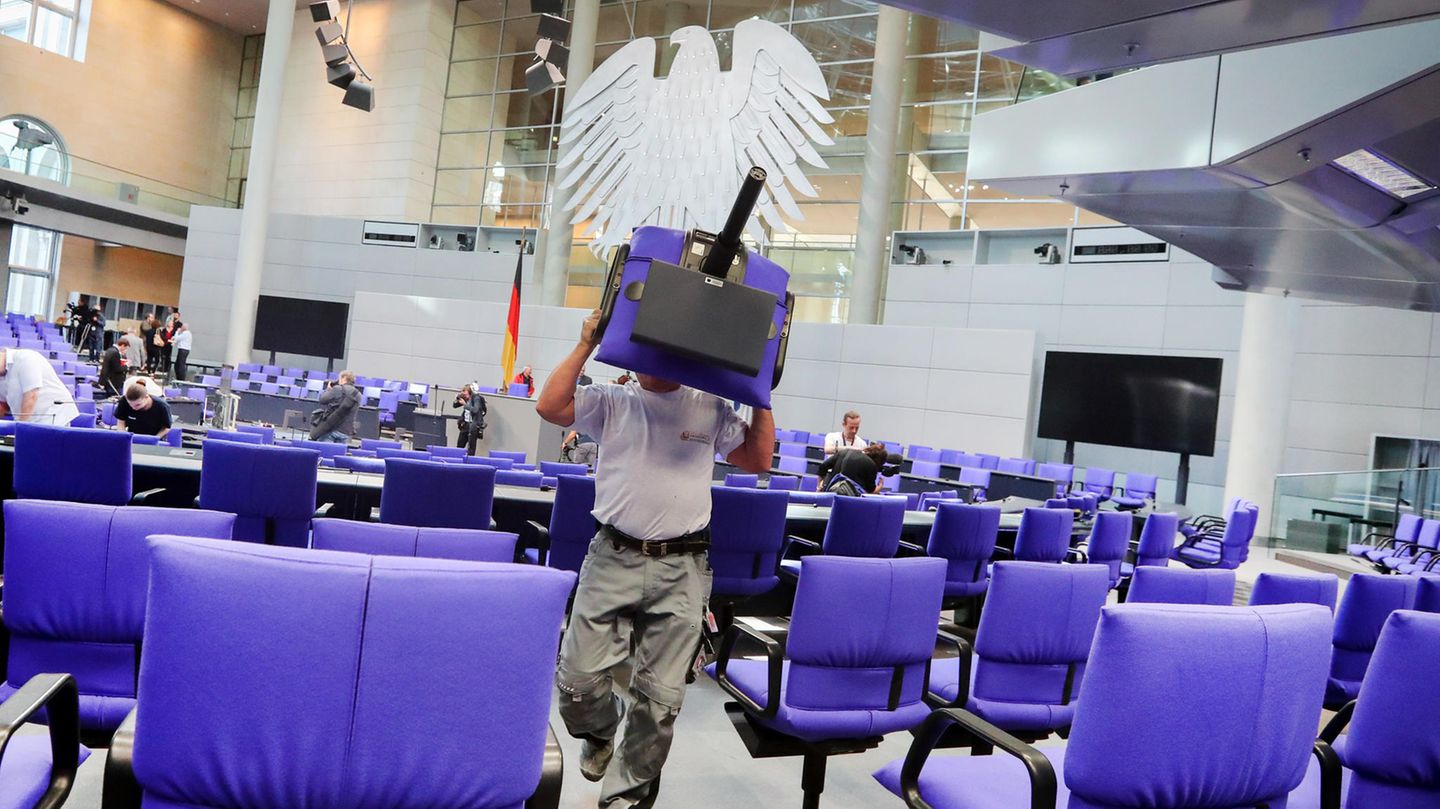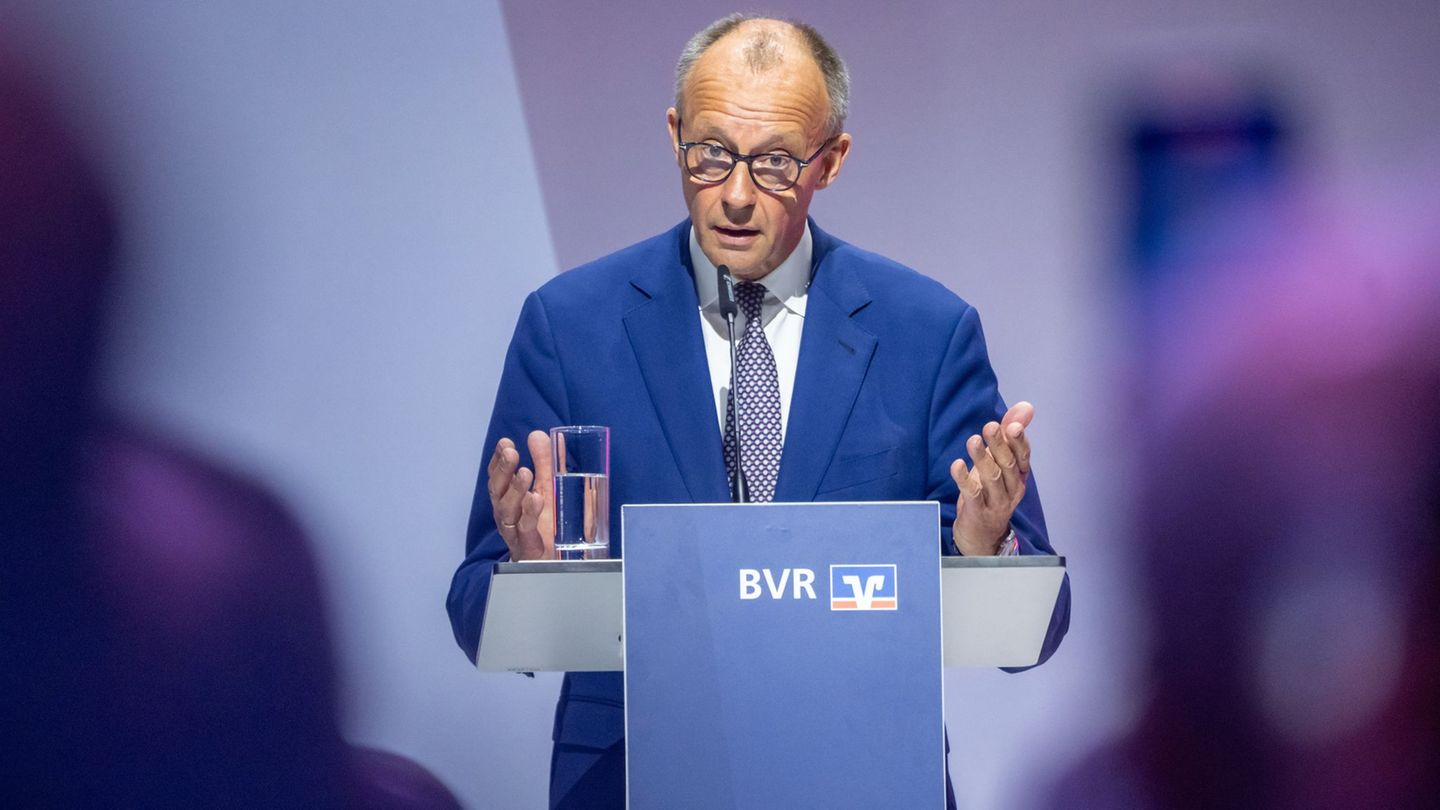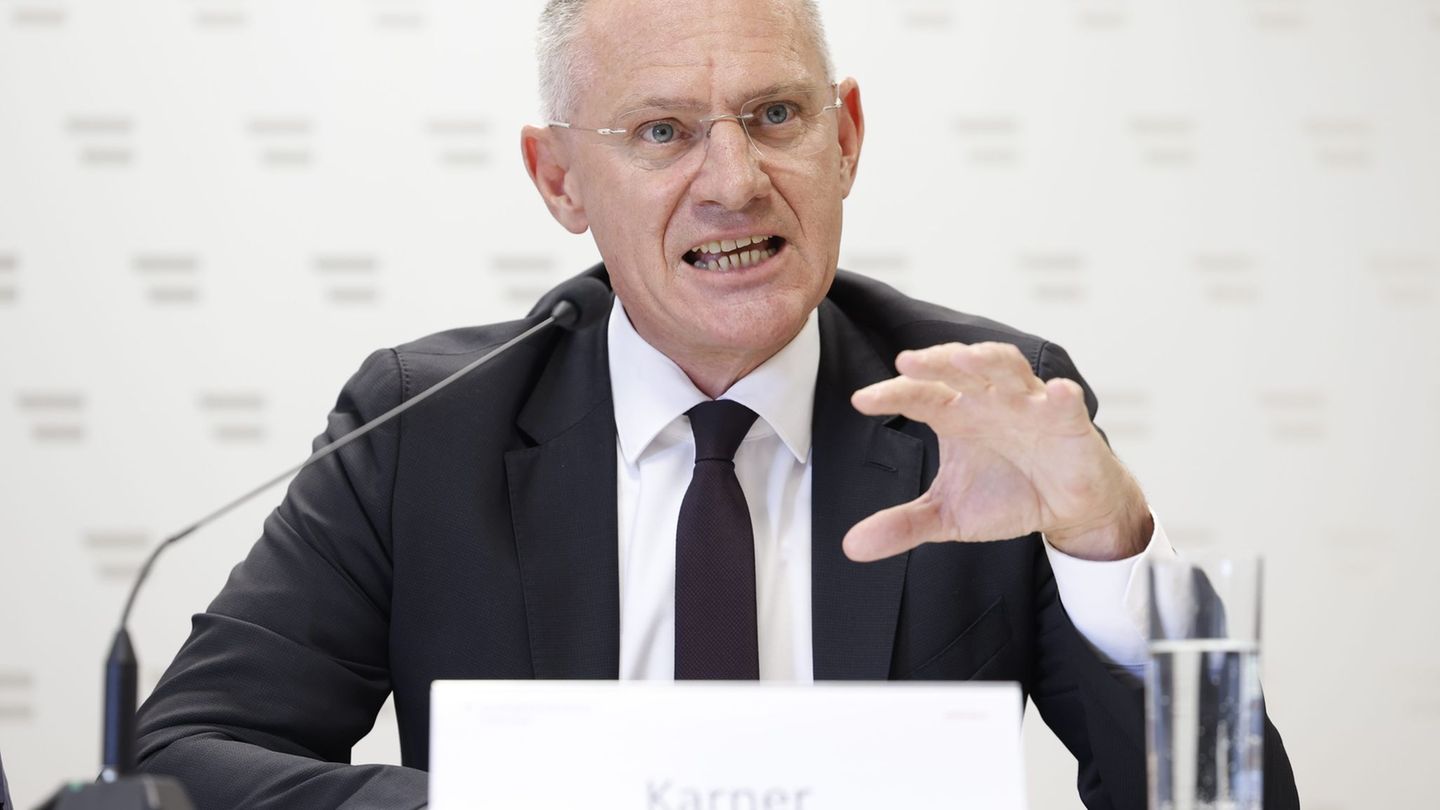The Bundestag has been getting bigger and more expensive for years, which is why a reform of the electoral law is urgently needed. The traffic light coalition has now come up with a new proposal. The crux: MEPs could vote for their own abolition.
“Questions about the electoral system are always questions of power,” says Jörg Siegmund star. Siegmund is a consultant at the Academy for Political Education in Tutzing and is responsible, among other things, for democracy and election research. Experts like him are watching the traffic light coalition’s plans to reform electoral law in Germany. That would be necessary, because the Bundestag has been getting bigger and bigger for years, and thus also more expensive and slower. From the original 598 seats, there are currently 736 MPs in the Bundestag, with an almost unlimited upper limit. That is why the traffic light coalition is planning a reform that would simply eliminate many seats. However, not as many as planned in January.
This is how the Bundestag is elected
With the first vote, the representatives from the 299 constituencies are elected. Those elected receive a direct mandate for the Bundestag. The second vote of the voters determines the proportion of seats that the parties receive in the Bundestag. For example, if the SPD has received 30 percent of the second votes, it will also get 30 percent of the seats in the Bundestag. The other candidates who enter parliament come from the state list of parties.
The fact that the Bundestag has been growing for years is due to the fact that parties are given overhang and balancing mandates. If, for example, a party gets more seats through the first vote than it is entitled to through the second vote, the elected candidates can still move in. In return, other parties receive compensatory mandates so that the relationship is maintained.
Electoral reform: What is the traffic light coalition planning?
The traffic light parties want to make the second vote the measure of all things, the number of seats in the Bundestag should be limited. In January a limit of 598 seats was planned, now there is talk of 630 seats. Overhang and compensation mandates would be eliminated.
In addition, the so-called basic mandate clause could be omitted. A party enters the Bundestag if it receives more than five percent of the votes (five percent clause) or at least three direct mandates (basic mandate clause), as in the case of the Left Party. This moved into the Bundestag in 2021 despite a result of 4.9 percent.
According to the draft, the traffic light is also planning name changes. In the future, the second vote could be called “main vote”, the first vote “constituency vote”.
What is the criticism of the electoral reform?
The Union in particular rebelled against a first draft in January, and MPs even spoke of organized election fraud. Because the Union benefits from the current regulation, especially the CSU gets many direct mandates in Bavaria. The Union would have to do without them.
Nevertheless, the accusation of falsification is exaggerated, says electoral law expert Jörg Siegmund starbecause all parties are losing seats: “The aim of the reform is to reduce the size of the Bundestag. However, it still wants to ensure that all parties are represented in the Bundestag according to their share of second votes. This means that all parties must give up seats proportionally. “
Why 630 seats?
The abolition of overhang and compensatory mandates would potentially result in the risk of constituencies remaining orphaned – i.e. having no direct representation in the Bundestag. This could affect Bavaria, for example, due to the many direct mandates of the CSU. In the current Bundestag of 2021, the CSU was able to win 45 mandates. According to the ratio of second votes, however, she was only entitled to 34, which is why she received 11 overhang mandates, summarizes the “BR”. The CSU would have to do without these 11 mandates. With the reform, those 11 elected candidates, who had the weakest result out of the 45, would not move into the Bundestag.
In order to increase the probability that as many constituencies as possible have direct representation in the Bundestag, the originally planned 598 seats could now be increased to 630. In January, individual MPs had to star-Information thrown the number 650 into the room, 630 could be a compromise that the Union faction could perhaps also support.
caesura in Parliament
From the eco-party to the Kosovo war to traffic lights: 40 years ago, the Greens entered the Bundestag
What’s next?
A vote on the reform is to be held on Friday, several media report unanimously. A simple majority is enough to change the electoral law, and the traffic light coalition could pass the law without the Union. In January, the Union faction announced that it would take legal action against the first draft, but this has now been revised.
The planned reform could save millions. For 2023, the Ministry of Finance estimates costs for the Bundestag of 1.14 billion euros for allowances, offices, travel, etc. The Bundestag last had a comparable size of 631 MPs in 2016, when the Ministry of Finance calculated around 857 million euros.
Sources: “”, , “”
Source: Stern
I have been working in the news industry for over 6 years, first as a reporter and now as an editor. I have covered politics extensively, and my work has appeared in major newspapers and online news outlets around the world. In addition to my writing, I also contribute regularly to 24 Hours World.




